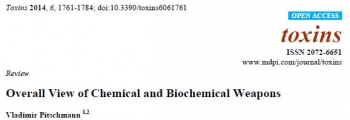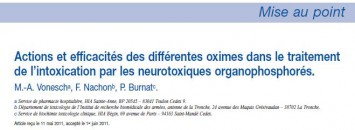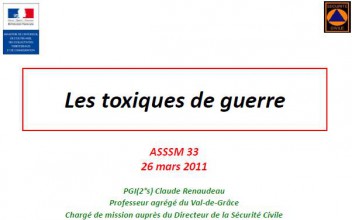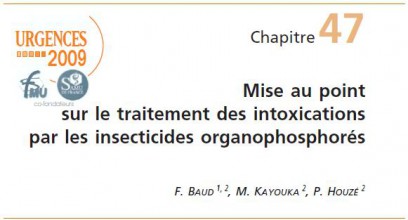18/01/2015
Overall View of Chemical and Biochemical Weapons
| Tags : nrbc
21/09/2013
Chemical Terrorism for the Intensivist
Chemical Terrorism for the Intensivist
Chalela J et All. Military Medecine, 177, 5:495, 2012
The use of chemical agents for terrorist attacks or military warfare is a major concern at the presenttime. Chemical agents can cause significant morbidity, are relatively inexpensive, and are easy to store and use.Weaponization of chemical agents is only limited by the physicochemical properties of some agents. Recent incidentsinvolving toxic industrial chemicals and chemical terrorist attacks indicate that critical care services are frequentlyutilized. For obvious reasons, the critical care literature on chemical terrorism is scarce. This article reviews the clinicalaspects of diagnosing and treating victims of chemical terrorism while emphasizing the critical care management. Theintensivist needs to be familiar with the chemical agents that could be used in a terrorist attack. The military classification divides agents into lung agents, blood agents, vesicants, and nerve agents. Supportive critical care is the cornerstoneof treatment for most casualties, and dramatic recovery can occur in many cases. Specific antidotes are available forsome agents, but even without the antidote, aggressive intensive care support can lead to favorable outcome in manycases. Critical care and emergency services can be overwhelmed by a terrorist attack as many exposed but not ill willseek care.
| Tags : nrbc
04/09/2013
Oximes: Pas toutes équivalentes
| Tags : nrbc, organophosphorés
Toxiques de guerre: Les fondamentaux
| Tags : nrbc, organophosphorés
Intoxication Organophosphorés: Mise au point
| Tags : nrbc, organophosphorés




